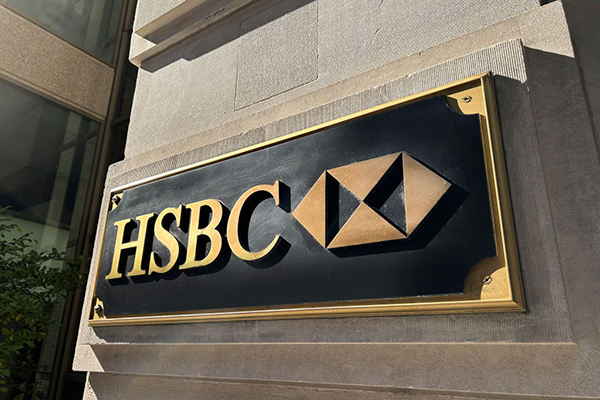Why the negative reaction to HSBC's first-half results?
A day after hitting a record high, shares in the banking giant have struggled following these half-year results. ii's head of markets explains the reaction.
30th July 2025 08:35

At first glance, there is little to cheer in HSBC Holdings (LSE:HSBA)' half-year numbers as evidenced by the initial share price reaction, although on closer inspection there are some extenuating circumstances.
- Our Services: SIPP Account | Stocks & Shares ISA | See all Investment Accounts
For example, pre-tax profit of $15.81 billion (£11.83 billion) was 27% lower than the corresponding period last year. However, this $5.7 billion is all but explained by the non-repeat of $3.6 billion arising from the previous disposals of the group’s Canadian and Argentinian businesses, as well as a rather more unsettling additional impairment loss of $2.1 billion on its associate, Bank of Communications.
The likelihood of the latter had been previously flagged, but the number is nonetheless a notable and unwelcome headwind. More positively, adjusted pre-tax profit excluding these exceptional items rose by 5%, in a similar way to the Return on Tangible Equity (ROTE) figure which slipped from 21.4% to 14.7% at the headline level, but rose by 1.2% to 18.2% on an adjusted basis.
The other numbers, including the key metrics, are something of a curate’s egg. The trading unit reaped the benefit of market volatility, and the Wealth business ploughed ahead strongly. However, higher impairment charges of $1.9 billion largely relating to the Hong Kong commercial real estate sector and increased operating expenses due to reorganisation costs and additional investment in technology, undid some of the good work.
- NatWest shares tipped to extend rally past significant figure
- A results beat for Barclays
- Lloyds Bank profit sails past forecasts
Elsewhere, Net Interest Income fell by just 0.5% to $16.82 billion, Net Interest Margin dropped to 1.57% from 1.62% and the cost/income ratio rose to (a nonetheless respectable) 49.9% from 43.7%. The capital cushion, or CET1 ratio of 14.6% remains sturdy and within the group’s target range, and the outlook comments reflect the likelihood of lower lending in the immediate future.
As such, its guidance comments are revealing but unsurprising. The group fully recognises that heightened uncertainty and a faltering economic outlook are already having a negative effect on business and consumer sentiment in its core regions.
The additional impairment provisions are prudent, but the group reiterates that it enters this phase of uncertainty in rude financial health. For investors, another area of concern is that with the convoluted tariff situation still playing out, the implications are as yet unclear and in some cases yet to come into full effect.
Even so, there is rarely any doubt as to the group’s financial muscle, and these numbers reiterate that might, while the subject of shareholder returns remains in sharp strategic focus. HSBC has announced yet another $3 billion share buyback programme, and an unchanged dividend which maintains the current 5.1% yield, which is an obvious attraction. This is also an additional bonus to a share price which has also fired ahead on hopes of further additions to its gargantuan revenue path following the transformation.
Strategically, the plan is significant but simple. Whereas HSBC had been moving towards becoming a business with a slavish reliance on interest rate movements and levels, the revised and increasing focus on the growth in affluent wealth, especially in Asia, is key to the new offering. The group has been investing heavily in this move, giving HSBC higher, but more diversified income streams.
Apart from the longer-term potential for the key Chinese market, the group previously identified areas such as India and Vietnam as being some of the fastest growing economies at present. The building of economic connections between Asia and the Middle East, notwithstanding any geopolitical conflicts, are also emerging opportunities for HSBC with its sprawling footprint.
- The secret behind 20 years of 15% returns
- Stockwatch: is this a sure-fire UK recession indicator?
- Sign up to our free newsletter for investment ideas, latest news and award-winning analysis
In the meantime, the strategic refocus means that there is some heavy lifting still to do. The reorganisation will bring costs of $1.8 billion over the next two years, although they should then settle at ongoing annual savings of $1.5 billion. Prospects nonetheless remain bright, with the Hong Kong, International Wealth and Premier Banking business and the trading unit within Commercial and Institutional Banking continuing to bear fruit.
The share price has also seen the benefit of a sector rerating, having risen by 45% over the last year as compared to a gain of 10.4% for the wider FTSE100. However, the numbers are further proof that in the shorter term there are more obvious growth opportunities elsewhere, leading to a market consensus which remains at a hold, albeit a strong one.
These articles are provided for information purposes only. Occasionally, an opinion about whether to buy or sell a specific investment may be provided by third parties. The content is not intended to be a personal recommendation to buy or sell any financial instrument or product, or to adopt any investment strategy as it is not provided based on an assessment of your investing knowledge and experience, your financial situation or your investment objectives. The value of your investments, and the income derived from them, may go down as well as up. You may not get back all the money that you invest. The investments referred to in this article may not be suitable for all investors, and if in doubt, an investor should seek advice from a qualified investment adviser.
Full performance can be found on the company or index summary page on the interactive investor website. Simply click on the company's or index name highlighted in the article.
Editor's Picks